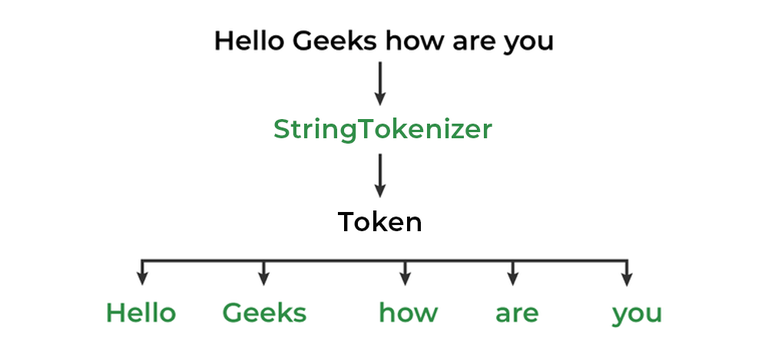What Is Unalterable Strings and How It Functions
In the world of shows, understanding the principle of immutable strings is critical for producing protected and durable applications. Immutable strings refer to strings that can not be altered after they are developed, ensuring information integrity and predictability within the code.
The Basics of Immutable Strings
Immutable strings, as an essential idea in programming, are character series that can not be transformed when they are created. This indicates that once a string is designated a value, that worth can not be modified. In languages like Python and Java, strings are immutable objects, leading to numerous ramifications in terms of memory administration and information stability.
One of the vital benefits of immutable strings is that they give a complacency in data control. Since the material of an unalterable string can not be modified, it guarantees that the initial data stays undamaged, reducing the danger of unintended changes during program implementation (Why are strings immutable in Java?). This residential property additionally simplifies debugging procedures, as designers can trust that as soon as a string is specified, its value will not be unintentionally altered
Additionally, immutable strings facilitate efficient memory use. When a brand-new string is produced based on an existing one, as opposed to modifying the original string, the brand-new worth is stored individually. This method enhances performance by decreasing memory fragmentation and simplifying memory allowance procedures. In general, comprehending the basics of unalterable strings is important for mastering shows concepts and optimizing code performance.
Advantages of Immutable Strings
Structure upon the protection and efficiency advantages of unalterable strings, their advantages extend to boosting code reliability and simplifying simultaneous programming tasks. By being unalterable, strings can not be modified after production, which eliminates the threat of unplanned changes in the information they save. This integral immutability makes sure that as soon as a string is developed, its worth remains consistent throughout the program's execution, minimizing the possibilities of bugs caused by unanticipated alterations.
Furthermore, unalterable strings contribute to code dependability by making it less complicated to reason concerning the state of a program. Given that strings can not be transformed, developers can trust that a string will always hold the very same worth, simplifying debugging and upkeep initiatives. This predictability brings about extra dependable and secure codebases.
Implementation in Programming Languages
Within numerous programming languages, the incorporation of immutable strings is a basic element that influences just how information is handled and manipulated within code structures. The implementation of unalterable strings varies throughout different programming languages, with each language providing its very own devices to sustain this principle.

On the other hand, languages like C and C++ do not have integrated support for immutable strings. Designers in these languages should manually apply immutability by applying guidelines within their code to prevent direct adjustments to string objects.
Ideal Practices for Working With Unalterable Strings
When handling unalterable strings in programs languages like Java and Python, sticking to ideal practices makes certain protected and reliable data control. Among the key ideal practices is to make use of StringBuilder or StringBuffer as opposed to directly controling strings, particularly when handling considerable concatenation operations. These article source classes offer mutable alternatives for string control, aiding to avoid unnecessary memory allocations and enhancing efficiency.
In addition, her response when working with sensitive data such as passwords or API keys, it is important to prevent storing them as plain message in unalterable strings. Making use of safe and secure storage space systems like char varieties or specialized libraries for dealing with sensitive details helps minimize protection dangers linked with unalterable strings.
Real-world Applications and Examples
Exploring useful implementations of immutable strings in different sectors reveals their substantial effect on information integrity and system integrity. In the health care field, unalterable strings play a crucial duty in ensuring the safety and security and confidentiality of client data. By protecting against unauthorized alterations to sensitive details such as medical documents and prescriptions, unalterable strings help keep conformity with strict privacy policies like HIPAA.
Banks likewise take advantage of the unalterable nature of strings to improve the security of client information and deal documents. Immutable strings assist prevent fraudulence and unapproved modifications to economic information, giving a robust defense versus cyber threats and making sure the trust and confidence of customers.

Verdict
Best practices for functioning with unalterable strings consist of staying clear of straight modifications and using techniques that return brand-new string things. Real-world applications of immutable strings include information file encryption, caching, and string control jobs.
Immutable strings refer to strings that can not be altered after they are produced, making sure data honesty and predictability within the code. When a new string is developed based on an existing one, instead than changing the initial string, the brand-new value is saved independently.In languages like Java and Python, strings are unalterable by default, meaning that once a string object is created, its value can not be altered - Why are strings immutable in Java?. Finest methods for functioning with unalterable strings consist of staying clear of straight modifications and making use of approaches that return brand-new string items. Real-world applications of unalterable strings consist of data file encryption, caching, and string adjustment tasks